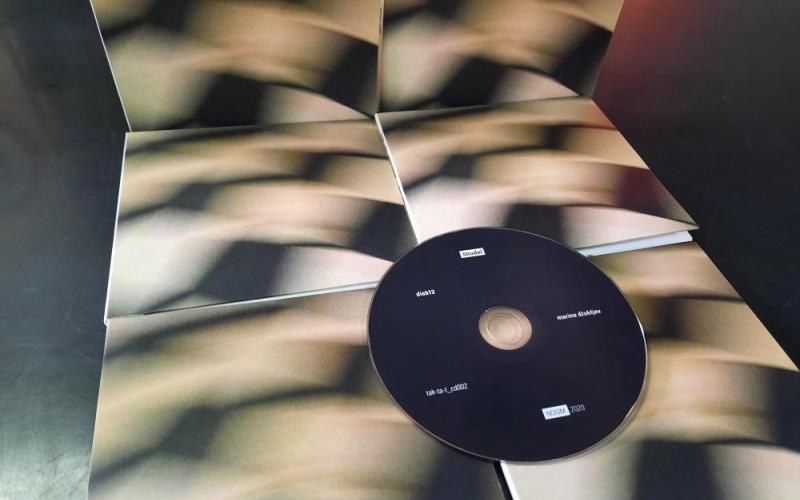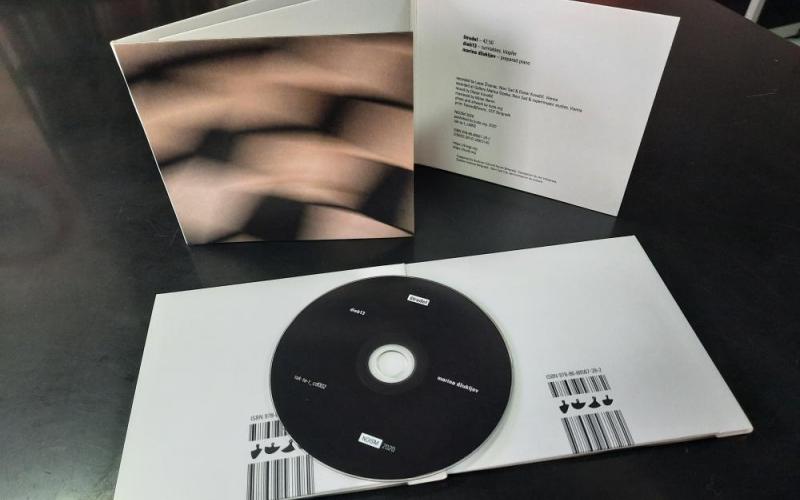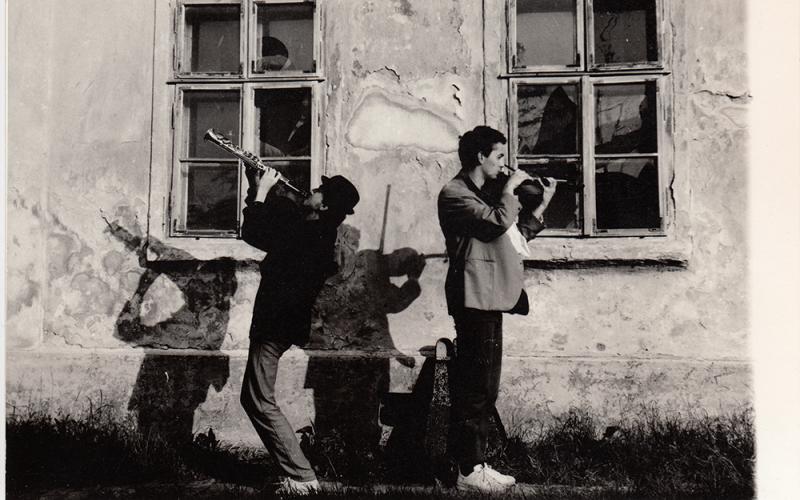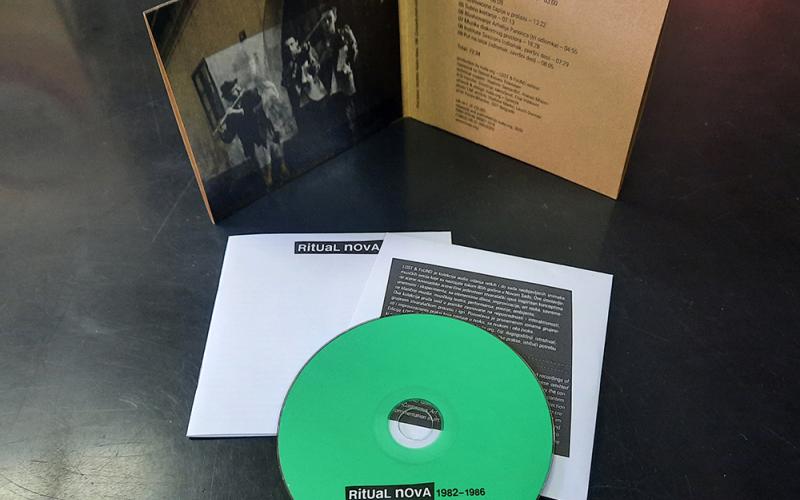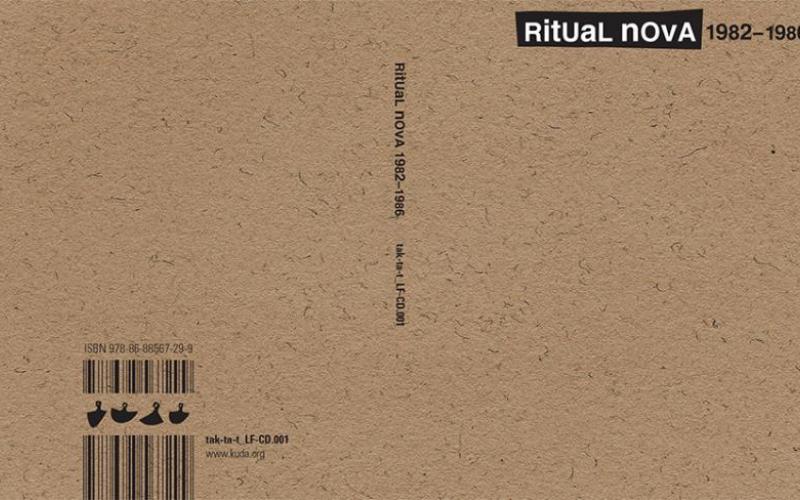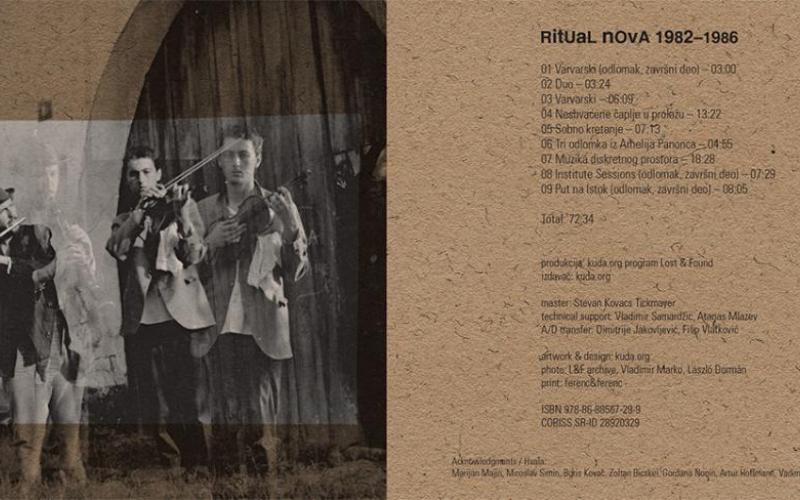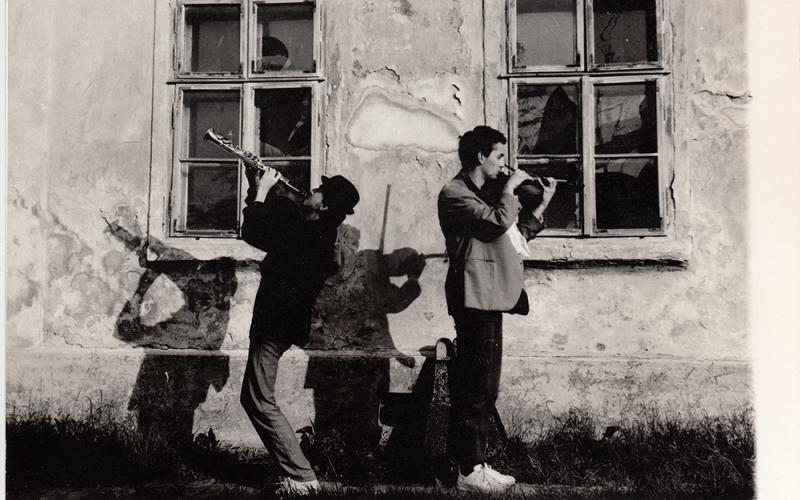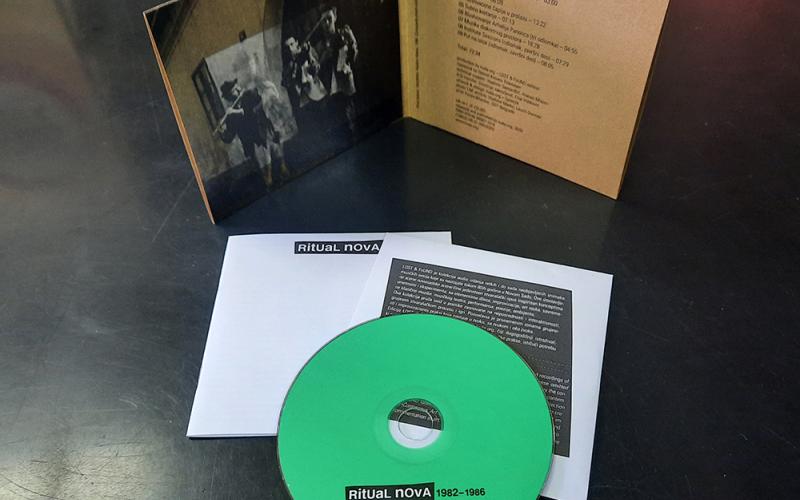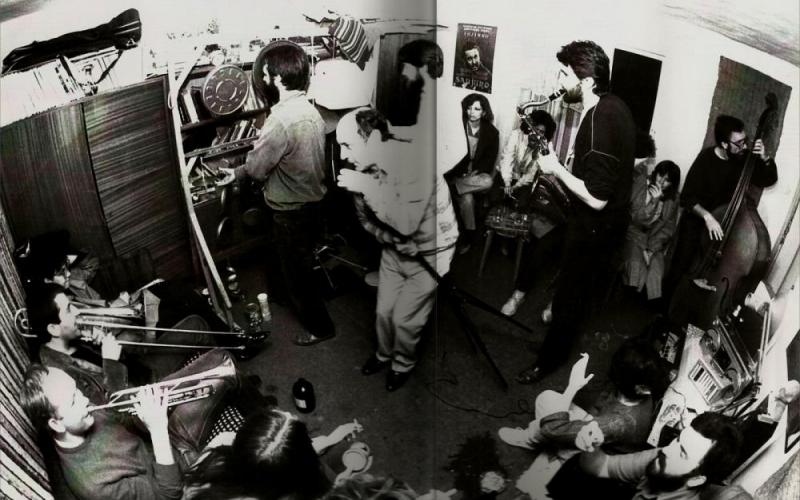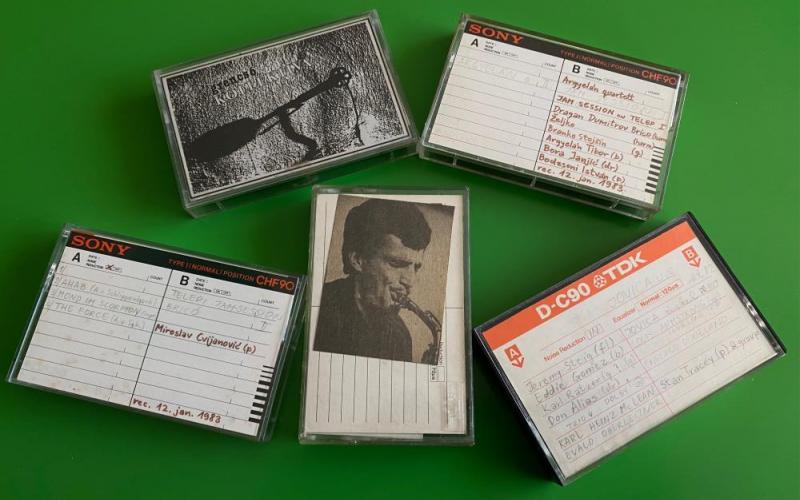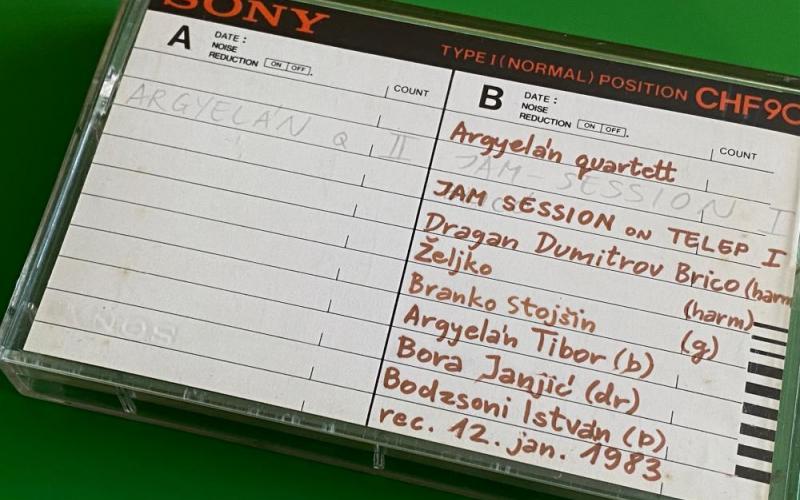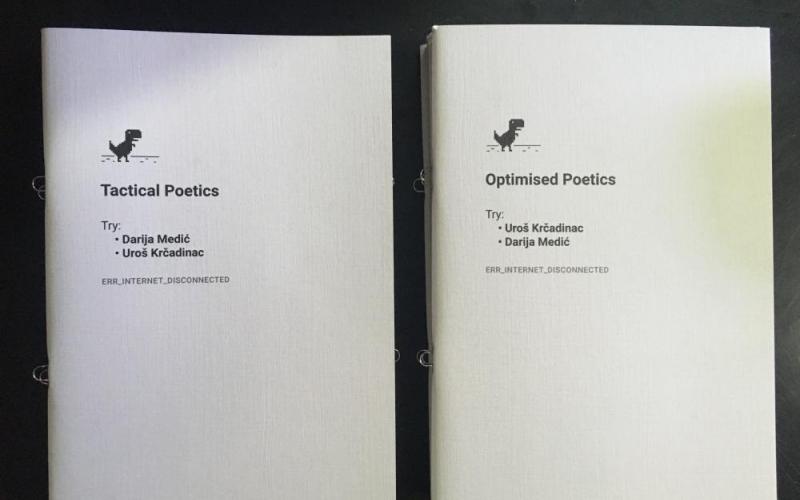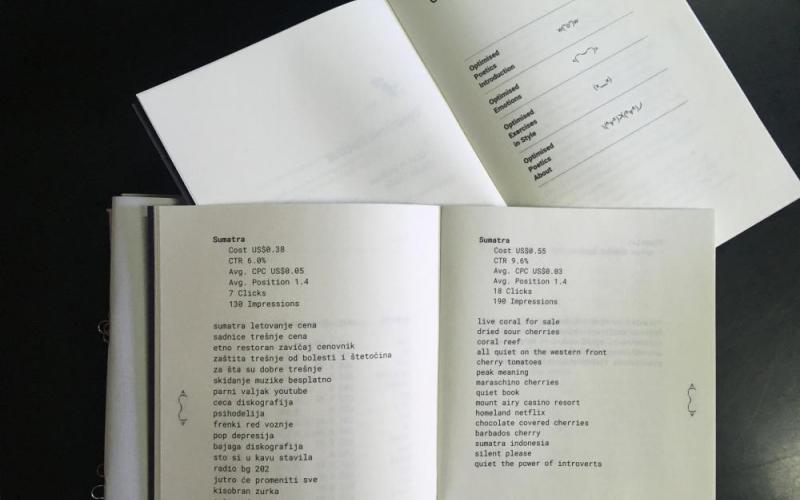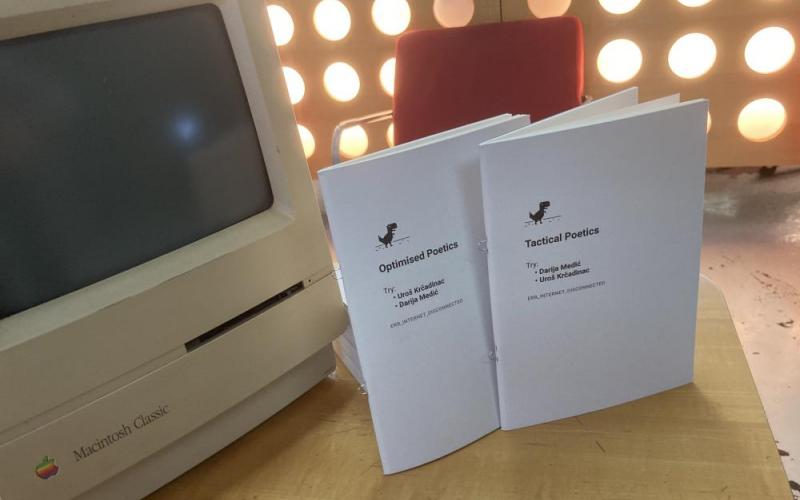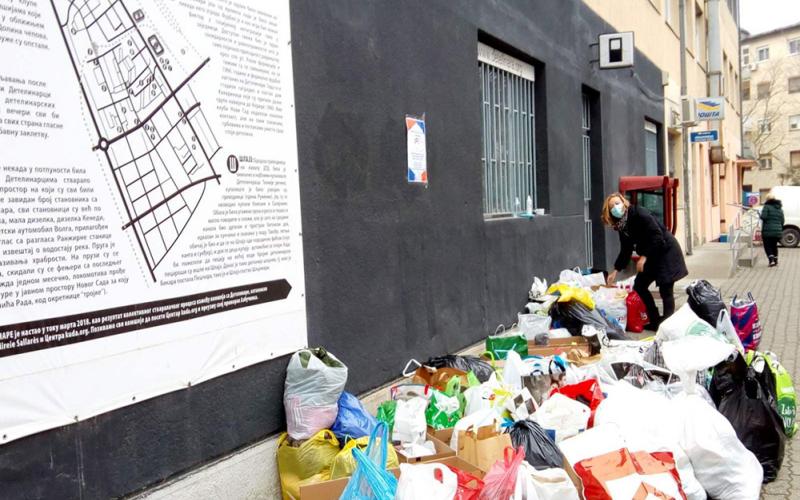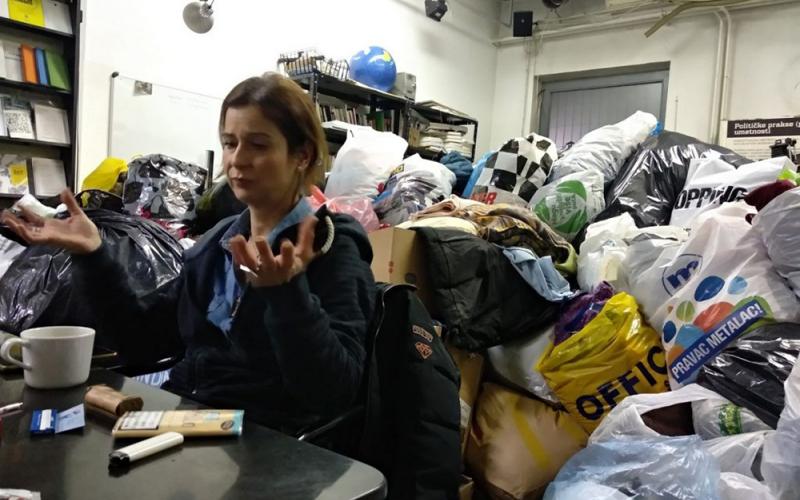Interview with architect Emil Jurcan, Pula
Submitted by admin on Wed, 2021-06-23 11:38Interview with architect Emil Jurcan, Pula
Emil Jurcan talks about the Pulska Grupa, the cooperative Praksa, the "use" of architecture, utilities, etc.
Emil Jurcan is an architect, one of the founders of the architectural cooperative Praksa, a member of the Pulska Grupa and the Civic Initiative for Muzil, in Pula, Croatia. and Civil Initiative for Muzil. These initiatives deal with the organization of public debates, protests, political pressures, workshops, conferences, publications, and exhibitions on the issue of privatization of public resources, especially abandoned military complexes in Pula.
Pulska Grupa is an informal group of architects from Pula. Since 2006, the group has gathered a narrow circle of 8 members - Ivana Debeljuh, Vjekoslav Gasparovic, Emil Jurcan, Jerolim Mladinov, Marko Percic, Sara Perovic, Helena Sterpin, and Edna Strenja, as well as many others. One of the first activities of the group was to organize a student workshop in the former military zone, Katarina, in Pula. The results of the workshop published in the book "Katarina 06 - opening of the Pula coast" caused a public conflict with the political elite, because they completely deviated from the official plans for this part of the coast. Since then, the group publishes publications, organizes demonstrations and exhibitions to agitate the audience towards self-organized urbanism in Pula, especially when it comes to the problem of the sea coast.
Pula Group: http://sites.google.com/site/pulskagrupa/
The interview was realized within the realization of the TV show Open Barracks, produced by kuda.org and associates, in 2011. The interview with Emil Jurcan was conducted by journalist Dragan Gmizić from Novi Sad, with members of kuda.org.
Open barracks: https://kuda.org/en/open-barracks
Interview with Lidija Radojević and Primož Krašovec, DPU, Ljubljana
Submitted by admin on Tue, 2021-06-22 15:33Interview with Lidija Radojević and Primož Krašovec, DPU, Ljubljana
Lidija Radojević and Primož Krašovec talk about the Delavsko Punkerska Univerza in Metelkova.
Workers' Punk University (Delavsko Punkerska Univerza) is an educational project that provides active education related to current political topics that are clearly avoided by recognized academic circles. For a long time, the self-sufficient knowledge of recognized universities has failed to address issues related to workers, punks, and other marginalized groups, that is, today's social and political reality, which is at a turning point. Workers' Punk University is a project within the Institute for Peace in Ljubljana. The project started in 1996 and is an alternative to official educational institutions. The university is based on collective work and strives to develop critical thinking and open new perspectives regarding the burning issues of today. The annual activities of the University are lectures once a week (every year there is a new subject that lasts throughout the academic year) on selected issues (previous subjects were related to Revolution, new right, love, and politics, new left, postfordism, political ecology, totalitarianism, etc. .); seminars on the interpretation of Marxism and other important social theories (Marx, Marcuse, Brecht, Freud, Altiser, St. Paul, Rousseau, etc. have been studied so far) and a symposium or summer/spring school (previous ones were dedicated to Kant, Adorno, tolerance, Grundrisse, etc.). All events of the Workers' Punk University take place in the former Metelkova barracks in Ljubljana.
More about Delavsko Punkerska Univerza at:
www.dpu.mirovni-institut.si
Description of DPU taken from: http://www.edicijajugoslavija.net
Metelkova or Autonomous Cultural Center Metelkova is an autonomous social center in Ljubljana, Slovenia. It is located on the site of the former Yugoslav army barracks and was squatted in 1993. Today, Metelkova consists of numerous independent spaces for artistic activities (studios, galleries), concerts, lectures, discussions, then offices for non-governmental organizations, a youth hostel, etc. Today, AKC Metelkova is under a strong blow of "normalization" and gentrification.
More about Metelkova:
www.metelkovamesto.org/?mode=static&id=19
The interview was realized within the realization of the TV show Open Barracks, produced by kuda.org and associates, in 2011. The interview with Lidija Radojević and Primož Krašovac was conducted by journalist Dragan Gmizić from Novi Sad, with members of kuda.org.
Open barracks: http://www.kuda.org/otvorene-kasarne-tv-emisija-kudaorg
kuda.org vas poziva na tribinu i razgovor o besplatnoj pravnoj pomoći u organizaciji Grupe Budi jedan (Grupa B1) iz Novog Sada
kuda.org vas poziva na tribinu i razgovor o besplatnoj pravnoj pomoći u organizaciji Grupe Budi jedan (Grupa B1) iz Novog Sada

kuda.org vas poziva na tribinu i razgovor o besplatnoj pravnoj pomoći u organizaciji Grupe Budi jedan (Grupa B1) iz Novog Sada
Četvrtak 17. jun 2021. godine u 18h
Prostorije Centra kuda.org, Braće Mogin 2, Novi Sad/Detelinara, ulaz pored Pošte
The competition announce for participation in a three-day workshop on video activism entitled: "DON'T HATE THE MEDIA, BE THE MEDIA"
Submitted by admin on Mon, 2021-06-14 13:14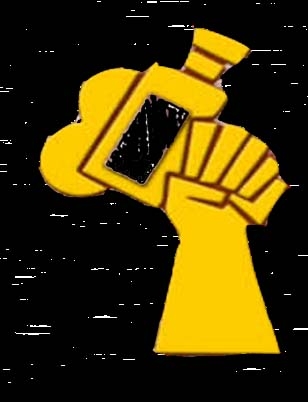
Center for New Media_kuda.org, Novi Sad, Youth Center CK13, Novi Sad, and the association Restart from Zagreb is announcing a competition for participation in a three-day workshop on video activism entitled:
"DON'T HATE THE MEDIA, BE THE MEDIA"
JUDITA ŠALGO - THE CHRONICLE, book promotion, Monday 24.11. at 6 pm, Jewish Community, Great Hall, Novi Sad
Submitted by admin on Mon, 2021-06-14 13:10The Jewish community, Novi Sad
GREAT HALL, FIRST FLOOR, Jevrejska 11, Novi Sad
Monday 24.11. at 6 p.m.
Presentation of the book "JUDITA ŠALGO - chronicle"
Participants in the conversation:
Maja Solar, poet, and philosopher, Novi Sad
Vujica Rešin-Tucić, writer, Novi Sad
Zoran Mirković, writer, Novi Sad
Jovan Gvero, SCCNS program editor, Novi Sad
Discussion and presentation of artwork, guest: Karol Radziszewski (Poland, Warsaw), Youth Center CK13
Submitted by admin on Mon, 2021-06-14 13:08Youth Center CK13 and Center for New Media_kuda.org invite you to:
MONDAY 24.11., 20:30
CK13, Vojvode Bojovića 13, Novi Sad
Conversation and presentation of a work of art
guest: Karol Radziszewski (Poland, Warsaw)
SZU SZU / DIK / FF and others
DAY OF REMEMBRANCE OF VICTIMS OF TRANSPHOBIA in the Youth Center CK13
Submitted by admin on Mon, 2021-06-14 13:05Youth Center CK13, Vojvode Bojovića 13 Novi Sad, www.ck13.org
23.11. Sunday, 7 pm, Day of Remembrance for the Victims of Transphobia
The Day of Remembrance for Victims of Transphobia was established in memory of all victims of hatred and prejudice against persons whose gender expression is not in line with gender-established traditional roles.
Prezentacija ALBANA MUJE, UMETNIKA IZ PRIŠTINE, KOSOVO, PONEDELJAK 2. JULA, 20:00, Omladinski centar CK13, Novi Sad, Srbija
Submitted by admin on Thu, 2021-06-10 16:33Centar za nove medije_kuda.org i Omladinski centar CK13
- Program Backyard residencies -
Prezentacija
ALBAN MUJA, Priština
Ponedeljak, 02. jul 2007
20:00 h
Dom omladine CK13, Vojvode Bojovića 13, Novi Sad
Alban Muja govoriće o svom iskustvu u Novom Sadu, ali u svom izlaganju više će se usredsrediti na svoj prethodni umetnički rad, budući da je počeo da radi kao konceptualni umetnik. Govoriće i o svom projektu (akciji) u ulici Novi Sad pod nazivom „Turistički grad“.
Tokom prezentacije Alban će pokazati deo svog video rada:
Film screening: FAVELA RISING, FRIDAY 31.08 AT 9 pm, YOUTH CENTER CK13, NOVI SAD
Submitted by admin on Thu, 2021-06-10 13:56YOUTH CENTER CK13
Vojvode Bojovica 13, Novi Sad
Tel: +381 21 4737 600
http://ck13.org
office@ck13.org
=====================================
Friday, August 31 at 9 p.m.
Movie projection:
FAVELA RISING
"The Star and Its Shadow", Iconographic Representations of the Five-Pointed Star in the Art of Socialist and Post-Socialist Society
Submitted by admin on Thu, 2021-06-10 11:45A star and its shadow
September 14 - October 5, 2006 (opening at 7 p.m.)
Museum of Contemporary Art Novi Sad, Dunavska 37
http://www.msluns.org.yu/izlozbe/2006/zvezda/2006-zvezda.html
Molecular invasion and other tactical media projects, Critical Art Ensemble (2003)
Submitted by admin on Wed, 2021-06-09 14:00Molecular invasion and other tactical media projects, Critical Art Ensemble (2003)
Critical Art Ensemble je kolektive koji čine pet umetnika različite specijalizacije. kolektiv je posvećen istraživanju intersekcije između umetnosti, tehnologije, radikalne politike i kritičke teorije. http://www.critical-art.net
The idea of tactical media and what it means is our topic of interest right from the start. It is important to say that we were quite irritated by the idea of "monuments" of culture in terms of various types of production from the cultural sphere. It was about something that the artist makes - a great work that greatly influences the course of art history, creates space for individuals, and builds a bunker of meanings that remain permanent. The critical art group was not really interested in such things. We were interested in what is immediate and transient. Maybe the meaning we create will fade over time. We do not create works to last, nor to represent universal claims. We rejected that and instead said: "What we are interested in concerns specific places at a specific time, we are also interested in how the audience understands us. By distorting the traditional art model, by which an artist inspires you, you express that inspiration, then the amount is in public so that people can see. We have found the opposite by wondering what is in the outside world and how we react in the social context. We will present some projects to illustrate what we mean by "tactical", as opposed to the monumental ideal of the strategic. "Giving a New Name" (Renaming Project) was performed in Victoria Square in Adelaide, Australia, and the situation we found there was as follows: Aboriginal people, the locals, had great difficulty trying to penetrate the public sphere. in the project was Central Park in the city, which was a secret land for them, because there was no place for them. In the park, there is a square called Victoria Square, which houses a huge monument to Queen Victoria, the world's greatest colonizer. Needless to say, how irritating it was, there was a feeling that another version of history should be told in the same place. and Western cultures, because our understanding of activism meant direct and fast action, and their understanding of penetrating the public plane meant slow action. These were two culturally completely different conceptions of time. The local population asked the city council to give the square a double name. Another name would be Aboriginal "Tamdaniunnga", meaning " there, where red kangaroos dream". The panel neither rejected nor agreed to that proposal. Needed by this situation, tribal elders, local activists and a multitude of stakeholders decided to take concrete action to name the square. In cooperation with the company that made the inscriptions called the city of Adelaide, inscriptions were made called the square - "Tamdaniunnga". That is when the Art Coalition for Public Art (PAAC) was formed. The group replaced 10 of the 20 inscriptions called Victoria Square and thus gave the square a double name. It was a way to show the activity that people can use in the material conditions they live in. They no longer had to live with the feeling that passive resistance was the only solution. It only took a few days. However, it is interesting that six weeks after that, the city council gave in and now the square has a double name. It was a concrete intervention that went public and that changed the previous situation - a structure that had been present for centuries. This is very close to the essence of tactical media. By this, we do not mean the obligatory creation of a material object, but processes in a situation where new ways of understanding and new ideas can be realized. In this way, other possibilities become feasible...
Saopštenje udruženja: Međunarodno udruženje likovnih kritičara – Sekcija Srbija (AICA-Srbija), Udruženje likovnih umetnika Srbije (ULUS), Savez udruženja likovnih umetnika Vojvodine (SULUV), Stanica – Servis za savremeni ples, Nezavisna kulturna scena Srb
Saopštenje udruženja: Međunarodno udruženje likovnih kritičara – Sekcija Srbija (AICA-Srbija), Udruženje likovnih umetnika Srbije (ULUS), Savez udruženja likovnih umetnika Vojvodine (SULUV), Stanica – Servis za savremeni ples, Nezavisna kulturna scena Srb

Saopštenje udruženja: Međunarodno udruženje likovnih kritičara – Sekcija Srbija (AICA-Srbija), Udruženje likovnih umetnika Srbije (ULUS), Savez udruženja likovnih umetnika Vojvodine (SULUV), Stanica – Servis za savremeni ples, Nezavisna kulturna scena Srbije (NKSS), povodom prekida izložbe umetnika Radoša Antonijevića u Oficirskom domu u Nišu
kuda.org announces: motive mutation, MSU / Music Biennale Zagreb
kuda.org announces: motive mutation, MSU / Music Biennale Zagreb
kuda.org residency at MSU Zagreb
Performance by kuda.org at the Music Biennale Zagreb
Second festival block - Continuum Nr. 2 - Shifting
MSU, southern plateau, Saturday May 29th, 2021, at 20h
'motive mutation'
kuda.org/noism
štrudel, new CD release of noism program
štrudel, new CD release of noism program
štrudel
dieb13 & Marina Džukljev
The new CD edition of the NOISM program was the result of the creative process of the two artists through the exchange of materials on the Internet.
The result is a joint improvisation combined in a composition of štrudel (strudel, whirlpool) lasting 42:50 minutes.
štrudel, novo CD izdanje noism programa
štrudel, novo CD izdanje noism programa
štrudel
dieb13 & Marina Džukljev
Novo CD izdanje NOISM programa, proizašlo je kao rezultat stvaralačkog procesa dvoje umetnika kroz razmenu materijala internetom na kojem su muzičari međusobno intervenisali.
Rezultat je zajednička improvizacija objedinjena u kompoziciji štrudel (štrudla, vir, kovitlac) u trajanju od 42:50 minuta.
LOST & FoUND music edition and label, CD Ritual Nova 1982-1986
LOST & FoUND music edition and label, CD Ritual Nova 1982-1986
The first kuda.org CD release in the LOST & FoUND edition
Ritual Nova 1982-1986 + booklet of the first edition with texts by Nemanja Sovtić and two author's reviews of musicians Stevan Kovač Tikmajer and Boris Kovač, founder of the ensemble Ritual Nova.
tak-ta-t_LF-CD.001
ISBN 978-86-88567-29-9
COBISS.SR-ID 28920329
kuda.org production
LOST & FoUND muzička edicija, CD Ritual Nova 1982-1986
LOST & FoUND muzička edicija, CD Ritual Nova 1982-1986
kuda.org objavljuje prvo CD izdanje u ediciji LOST & FoUND / Izgubljeno - Nađeno
Ritual Nova 1982-1986 + booklet prvog izdanja sa tekstovima Nemanje Sovtića i dva autorska osvrta muzičara Stevana Kovača Tikmajera i Borisa Kovača osnivača ansambla Ritual Nova.
tak-ta-t_LF-CD.001
ISBN 978-86-88567-29-9
COBISS.SR-ID 28920329
produkcija kuda.org
kuda.org najavljuje: mutacija motiva, MSU / Muzički Bijennale Zagreb
kuda.org najavljuje: mutacija motiva, MSU / Muzički Bijennale Zagreb
Rezidencija kuda.org u MSU Zagreb
Nastup kuda.org na ovogodišnjem Muzičkom Bijenalu Zagreb
Drugi festivalski blok - Continuum Nr. 2 - Shifting
MSU, južni plato, subota 29. maj 2021. u 20 časova
'mutacija motiva'
kuda.org/noism
“... IT IS NOT ONLY A PRIVATE MATTER, ...”, ŽELIMIR ŽILNIK, March 29th: Screening of films and discussion; March 31: Exhibition
Submitted by admin on Tue, 2021-05-25 13:12In the frame of a project dedicated to the 40-eth anniversary of the first public screening of a Želimir Žilnik film at the Short and documentary film festival in Belgrade, in 1967, there will be a screening program, as well as an exhibition installment, a public discussion of the contextual aspects of his social and cultural work, and a concert of one of the bands that did the music for his films. Promotion of the work of Želimir Žilnik at the festival in Belgrade represents the beginning of engagement on the realization of DVD about the work of Želimir Žilnik.
Presentation of the project and exhibition "I love you [rev.eng]", Franziska Nori
Submitted by admin on Tue, 2021-05-25 12:59Presentation of the project and exhibition "I love you [rev.eng]", Franziska Nori
Franziska Nori is head of research of the digitalcraft.org organization which produces exhibitions devoted to phenomena of digital culture. From 2000 - 2003 she was curator of the department for new media art and crafts at the Museum of Applied Arts (MAK) in Frankfurt, for which she organized exhibitions as well as a collection of digital objects (games and websites). Franziska Nori and her team produced exhibitions such as 'I Love You' exploring the worlds of hackers and viruses, 'adonnaM.mp3' devoted to peer-to-peer networks and file-sharing in the Net, 'Digital Origami’ about the so-called demo scene. In 1998, she was appointed by the European Commission to deliver an appraisal of future strategies for European museums working with new media. From 1992 on she has worked as an independent curator of modern and contemporary art at the Schirn Kunsthalle Frankfurt, the Museum für Moderne Kunst in Vienna, the Museo Nacional Reina Sofia in Madrid, and the Fundación la Caixa in Palma de Mallorca.
digitalcraft.org was founded in 2003 as a spin-off of the “digitalcraft“ section of the Museum for Applied Art in Frankfurt is Main (2000-2003). Its mission is to research and document fast-moving trends in everyday digital culture and to present them to the public. Since 2003, digitalcraft.org has been an independent cultural organization under the direction of Franziska Nori. Its work includes interdisciplinary exhibition projects such as “adonnaM.mp3“ (2003) on the phenomenon of file sharing, “Origami Digital“ (2003) on the digital demo scene. The subjects it explores reflect the rapid development in communications technologies and methods and their significance for modern society.
"I love you [rev.eng = reverse engineering]" is the first international exhibition devoted to the phenomenon of computer viruses. A unique feature of this exhibition is the idea of a wide range of possible meanings of computer viruses - from purely computer-related entities through inspiration to the means of artistic creative work. As part of the "I love you [rev.eng]" exhibition, various inquiries into this matter are divided into historical, political, cultural and technical segments. The focal points are controversial relationships between computer security experts and hackers, net artists and programmers, literary experts and "poets" of the computer code.
Nowadays computer viruses are an integral part of our computerized everyday life. The damage to national economies caused by the more than 90,000 viruses that have already appeared worldwide runs into many billions. The independent US research institute Computer Economics puts the damage in the case of virus "I love you" in 2001 alone at 8.75 billion US $. But not all computer viruses are harmful. Computer viruses can also result from experimentation with (programming) language. “I love you [rev.eng]” is the first exhibition worldwide dedicated to the phenomena of computer security and computer viruses, and takes up both these aspects to carry out a controversial experiment with a contemporary culture that goes far beyond current vehement debates on hacking.
“I love you [rev.eng]” is divided into political, technical and historical areas of investigation and focuses on the controversial positions of security experts and hackers, of net artists and programmers, of literature experts and code poets. What actually is a computer virus? Who creates them, and why? What sort of world is hiding behind these everyday phenomena? The exhibition provides background information, presents artworks, and reveals the role of computer viruses as a destructive force and economic threat as well as an inspiration for creating art. "I love you [rev.eng]“ is conceived and presented by the cultural organization digitalcraft.org based in Frankfurt, Germany.
The exhibition has been presented in Novi Sad and in Belgrade, June/July 2006.
Producer of the exhibition in Serbia:
New Media Center_kuda.org, Novi Sad
www.kuda.org/iloveyou
www.digitalcraft.org/iloveyou
Coproducers of the exhibition in Serbia::
BELEF 06: www.belef.org
Museum of Contemporary Art Novi Sad: www.msluns.org.yu
Museum of Contemporary Arti Beograd: www.msub.org.yu
OPEN BARRACKS
Submitted by admin on Mon, 2021-05-17 12:10OPEN BARRACKS
The idea of the TV documentary OPEN BARRACKS is directed to the process of demilitarization of the city of Novi Sad by changing the purpose into public, of former military infrastructure. The necessity of demilitarization of Novi Sad is comparatively put into the context of former Yugoslavia social and alternative centers of Metelkova in Ljubljana and Rojc in Pula.
OPEN BARRACKS, 27 min.
production: Center_kuda.org & cooperators
journalist: Dragan Gmizić
cameraman: Szilard Kovacs and Orfeas Skutelis
editing: Csaba Polgar
music: Vladimir Rašković
architects: Daniela Dimitrovska and Aleksandar Bede
TV documentary OPEN BARRACKS is realized within a three-years-long regional project "Individual Utopia", in which Center_kuda.org cooperates with Tirana Institute for Contemporary Art - T.I.C.A. and Sarajevo Center for Contemporary Art - SCCA/pro.ba (http://www.pro.ba/utopia/).
Within the project "Individual Utopia", TV documentary received support from:
Swiss Program for Culture Western Balkan
Ministry for Culture and Media Province of Vojvodina
ECF - European Cultural Foundation
ERSTE Stiftung
IN MEMORIAM Artur Hoffmann (1954 – 2021)
IN MEMORIAM Artur Hoffmann (1954 – 2021)
IN MEMORIAM
Artur Hoffmann (1954 – 2021)
Vectors of Collective Imagination, Darija Medić & Uroš Krčadinac • Tactical Poetics / Optimised Poetics
Vectors of Collective Imagination, Darija Medić & Uroš Krčadinac • Tactical Poetics / Optimised Poetics
Vectors of Collective Imagination
Darija Medić & Uroš Krčadinac • Tactical Poetics / Optimised Poetics
Vektori kolektivne imaginacije - Darija Medić & Uroš Krčadinac • Tactical Poetics / Optimised Poetics
Vektori kolektivne imaginacije - Darija Medić & Uroš Krčadinac • Tactical Poetics / Optimised Poetics
Vektori kolektivne imaginacije / Vectors of Collective Imagination
Darija Medić & Uroš Krčadinac • Tactical Poetics / Optimised Poetics
RESURS CENTAR ZA LOKAL AKTIVIZAM: Akcija Grupe Budi jedan za beskućnike pod sloganom - daruj, ugrej, nahrani!
RESURS CENTAR ZA LOKAL AKTIVIZAM: Akcija Grupe Budi jedan za beskućnike pod sloganom - daruj, ugrej, nahrani!
RESURS CENTAR: Akcija Grupe Budi jedan (B1) za beskućnike pod sloganom - daruj, ugrej, nahrani!
U sredu 16.12.2020. na Detelinari Grupa B1 je organizovala akciju prikupljanja pomoći za naše sugrađane beskućnike. Građani Novog Sada darovali su: više od pola tone odeće i obuće, deset velikih kartonskih kutija hrane, pet kutija higijenskih sredstava i četiri gajbe voća!



